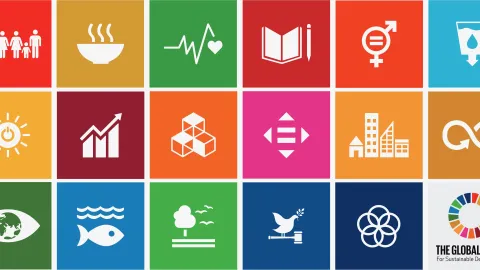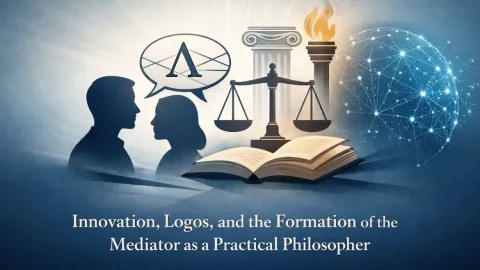Mediation in Ethiopia: Rules, Challenges, and Practical Workarounds
July 23, 2025
Mediation has recently gained recognition as a dispute settlement mechanism in Ethiopia. However, the absence of a clear legal framework outlining private mediation’s procedural application poses challenges. The inconsistent use of terminology in statutes, often conflating mediation with conciliation, arbitration and compromise, further complicates its effective implementation. This article explores the legal provisions recognising mediation, examines the inconsistencies in terminology in both legislation and practice, highlights the resulting challenges, and suggests practical workarounds.
Previously, laws (including the Civil Code and Civil Procedure Code from the 1960s) did not expressly recognise mediation as a dispute settlement mechanism. Compromise was understood to recognise mediation implicitly. Recently, however, new laws have been enacted that expressly mention mediation . These include the Capital Market Proclamation 1248/2021 (“Capital Market Proclamation”), the Federal Courts Proclamation 1234/2021 and the Federal Courts Court-Annexed Mediation Directive 12/2022 (“Directive for Court-Annexed Mediation”).
The process in the Court-annexed mediation, as stipulated in the directive for court annexed-mediation and the Federal Courts Proclamation, is clear. The court mandatorily refers certain cases to mediation, administered by the mediation centre established under the federal courts. Either the parties or the court appoint a mediator, and the settlement agreement is approved by the court and is enforceable like a court decision. However, there remains significant uncertainty regarding which law governs the private mediation process, leading to ambiguity about how private mediation should be conducted and enforced.
Aside from the lack of comprehensive legislation governing private mediation, more problematic in Ethiopia is the inconsistent use of terminology that confuses mediation with other dispute resolution mechanisms. Because Ethiopian laws are enacted in both English and Amharic versions, such inconsistency can be easily observed. For instance, the Capital Market Proclamation (Article 111) translates mediation as shimglina, a term traditionally associated with arbitration under the Civil Code (Articles 3318-3324) and the Ethiopian Commodity Exchange Proclamation (Article 28). In contrast, the Federal Courts’ Proclamation and the Directive for Court-Annexed Mediation use the term masmamat, which has referred to conciliation under the Labour Proclamation 1156/2019 (Article 144). Adding to the complexity, the conciliation/mediation rules of the Arbitration Institute of the Addis Ababa Chamber of Commerce and Sectoral Associations (2014) translates mediation as magbabat — yet another term to describe mediation. The fact that the same rules apply to both mediation and conciliation amplifies the problem.
This terminological inconsistency extends to the courts. For instance, in Mukemil Mohammed vs. Miftah Kedir (2009), the Federal Supreme Court Cassation Division used the term irrq to describe mediation, a term which is used to describe conciliation in the Arbitration and Conciliation Working Procedure Proclamation 1237/2021 and the Civil Code.
This lack of uniformity complicates the understanding of mediation. For example, parties whose mediation clause is in English may face uncertainties as to what process to follow, including whether they need to register the settlement agreement in the court for it to be enforceable.
Likewise, the enforcement process of a mediated settlement would depend on, among other things, the use of the Amharic term to describe the process because the working language of the federal courts is Amharic. If the mediated settlement is translated as irrq, the settlement would be considered as an outcome of conciliation, enforceable as a court decision in accordance with the provisions of the Arbitration and Conciliation Working Procedure Proclamation 1237/2021. However, a problem arises if one of the parties challenges the use of the term irrq by comparing it with the original mediation clause. In such instances, the cited law may not apply.
On the other hand, the enforcement process becomes less clear when a mediated settlement is translated as shimgilina, masmamat, or magbabat. In such instances the settlement agreement would probably be enforced pursuant to the compromise provisions of the Civil Procedure Code.
Compromise, although translated as irrq in the Civil Code and Civil Procedure Code, is an umbrella term to describe settlement agreements resulting from negotiations, mediation, and conciliation. However, these provisions lack clarity. When a compromise is reached during court proceedings (either through the referral of the court or by the initiation of the parties), the court incorporates the agreement into the case file after verifying its compliance with legal and moral standards. Subsequently, the court renders a judgment, making the settlement agreement enforceable in accordance with Article 277 of the Civil Procedure Code. In contrast, if the compromise is reached outside court, Article 277(3) of the Civil Procedure Code requires the court to be notified, allowing the plaintiff to apply to withdraw the case. However, the legal implications remain uncertain if the plaintiff fails to request withdrawal, leaving a gap in the procedural framework. It is not clear as to the purpose of the settlement agreement if it does not automatically terminate the pending case.
What if the mediation process is not linked to the court at all? The practice is mixed. The court, in Mrs. Niema Abadiga Abawaji vs. Mr. Taha Jemal Adem (2013), ruled that an irrq made out of court cannot and does not need to be registered for enforcement, making the settlement agreement enforceable without such requirement. Conversely, the court, in Mrs. Enanaytu Isa vs. Mrs. Hasina Hussien (2015), in respect of a post-judgment settlement agreement, ruled that an unregistered irrq is not enforceable. Therefore, even if a private mediation (not linked to the court) is translated as irrq, it is not certain as to whether the settlement agreement needs to be registered in court and whether it can be enforced without registration.
To mitigate the aforementioned challenges, parties may opt for conciliation. Using the term conciliation or its Amharic equivalent, irrq, rather than mediation in dispute resolution clauses and settlement agreements ensures clarity regarding the applicable legal framework and the enforceability of the outcome.
If the existing dispute resolution clause refers to mediation (in English), parties can agree to amend it to conciliation. If parties do not agree in amending it, it may be wise to file a petition with the court before initiating the process, allowing the parties to conduct their mediation (or notify the court settlement) during the hearing and register their agreement as a compromise, thereby rendering it binding and final, under the Civil Code.
In conclusion, Ethiopia’s legal framework for mediation remains underdeveloped, creating significant challenges. The inconsistent use of terminology further compounds these difficulties. While legislative intervention is the most effective long-term solution, practical approaches can still ensure the enforceability of mediated settlements. These include replacing the term mediation with conciliation in agreements or submitting the case to the court, allowing the resulting settlement to be treated as a compromise and enforced in accordance with the Civil Procedure Code.
You may also like










Paul Sills
Editorial Comment: When Words Matter – The Critical Role of Terminology in the Global Practice of Mediation Gidey Belay Assefa’s insightful contribution highlights a challenge that, while rooted in the Ethiopian legal context, raises broader and globally relevant questions for the mediation community: how much does consistency in terminology matter? Assefa describes a complex legal and linguistic environment in which multiple Amharic terms—shimglina, masmamat, magbabat, and irrq—are variously used to translate “mediation”, “conciliation”, or “compromise”, with each carrying distinct legal and cultural connotations. This terminological inconsistency not only risks confusion among parties, mediators, and courts, but directly affects the enforceability of settlement agreements. It also undermines confidence in mediation as a reliable and distinct process within the broader dispute resolution landscape. This editorial invites readers to consider a broader question: are there other jurisdictions where the potential of mediation is being inadvertently diminished by inaccurate translation, culturally ambiguous terminology, or confusion with adjacent processes such as conciliation or arbitration? In regions where legal systems are multilingual or where legal transplants are common, how can consistency be preserved? As cross-border mediation grows and the Singapore Convention on Mediation begins to shape global norms, the clarity and consistency of the language we use—both in legislation and practice—becomes not just a matter of good drafting, but a matter of enforceability, trust, and access to justice. We encourage our global readership to share their experiences. Have you encountered similar issues in your jurisdiction? How are linguistic or cultural complexities affecting the development of mediation where you work? What strategies—legislative, judicial, or practical—have proven effective in overcoming them?